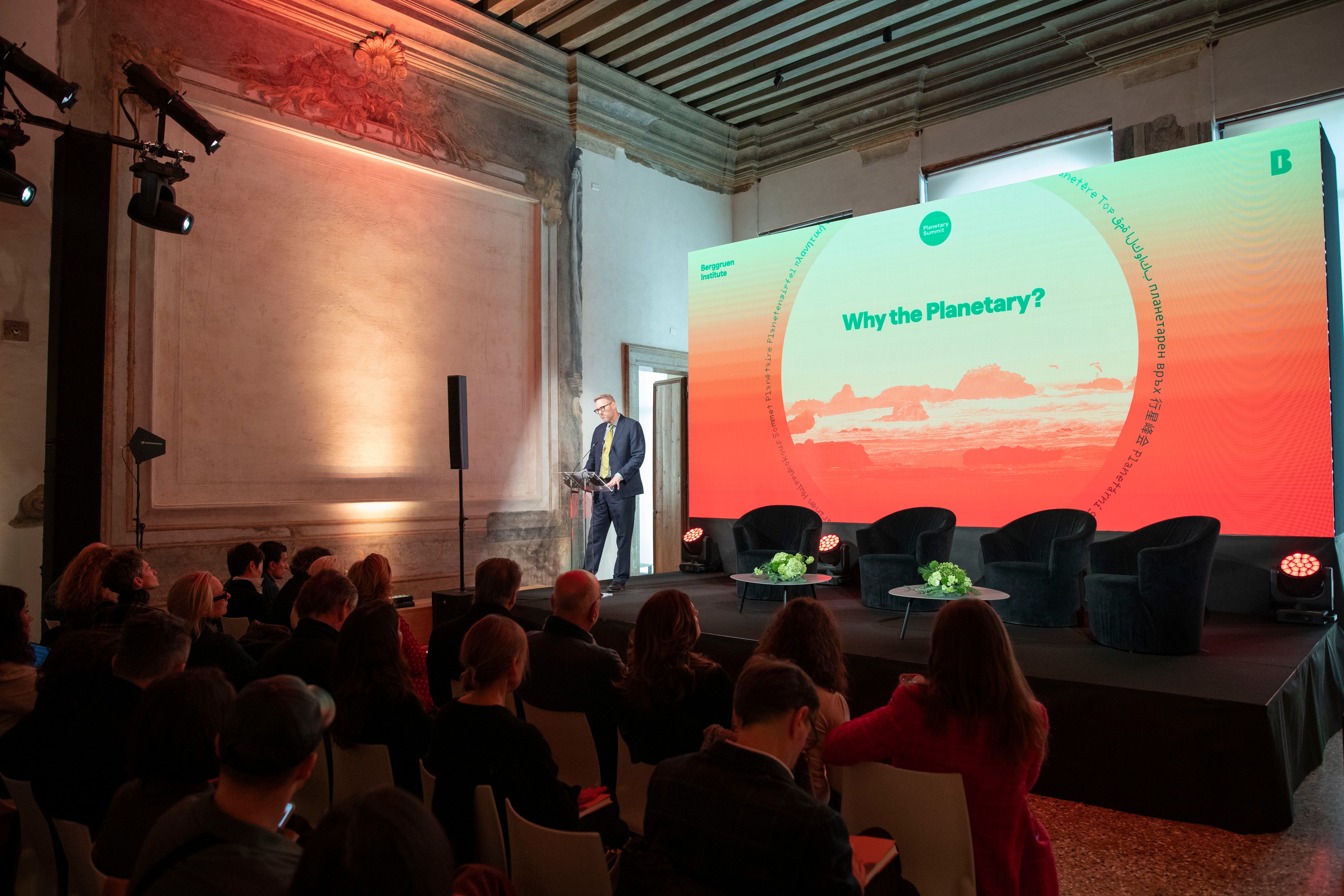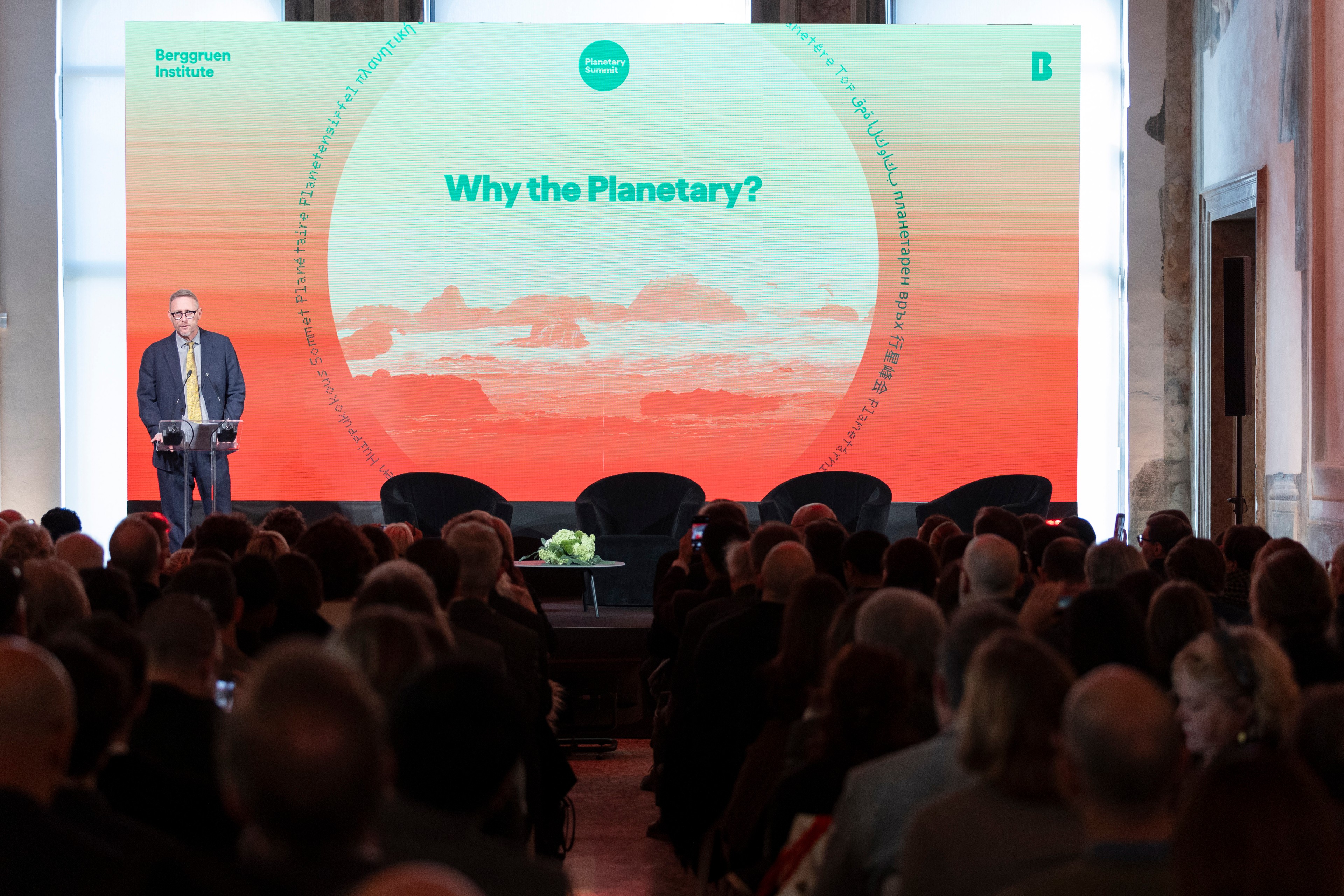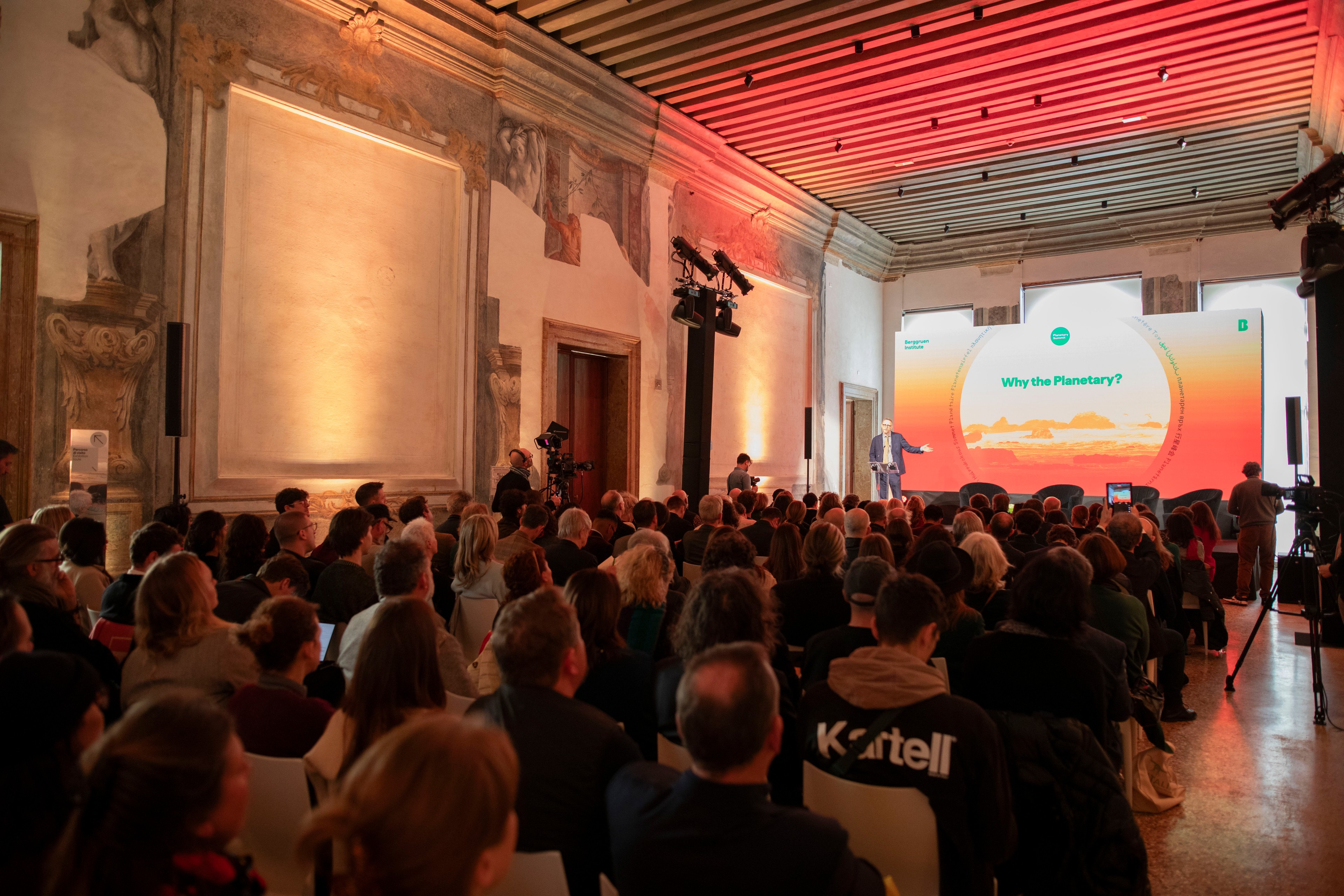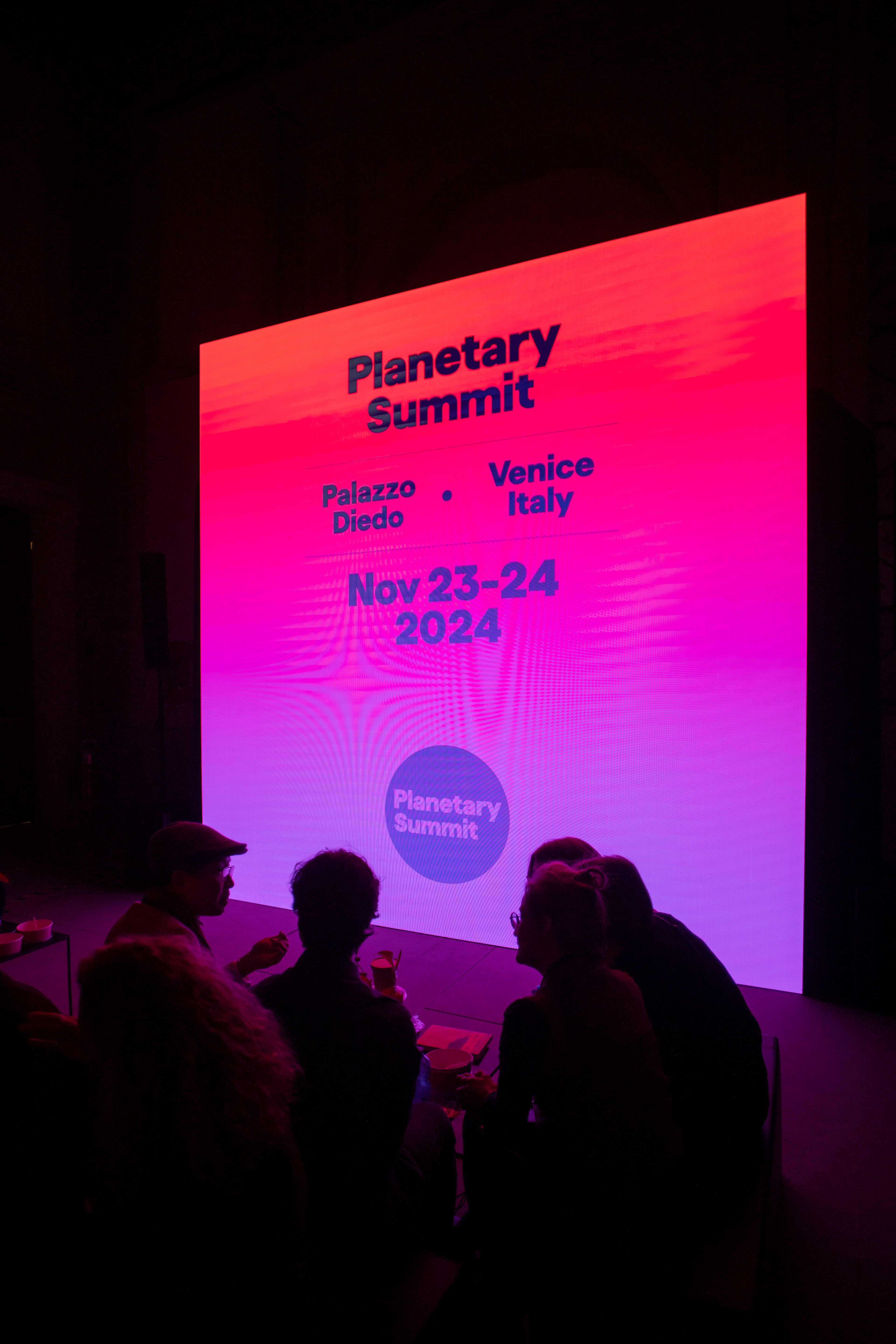"The Planetary: Past Time for a New Paradigm" opening plenary by Nils Gilman

The history of the last hundred years can be told as a litany of crises. Especially since 1973, the year of the oil embargo and global fuel shortages, the world has seemed to lurch from disaster to disaster, across every sector:
- Economic, from the Global Financial Crisis and Great Recession to the broken supply chains and cost of living crisis caused by the pandemic;
- Political, with steep declines in institutional capacity, credibility and legitimacy
- Geostrategic and military, from 9/11 and the Global War on Terror to ongoing horrors in Ukraine, Sudan, and the Levant;
- Epidemiological, from the HIV-AIDS to the COVID-19 pandemics;
- And of course Climatic, with nearly every month bringing a new record temperature or acute weather-related disaster.
This sense of multiplying and accelerating crises today goes by the name “polycrisis” – a term coined by Edgar Morin in his 1993 book Homeland Earth: A Manifesto for the New Millennium to describe complex, interconnected, planetary-scale challenges that produce cascading failures if not addressed holistically. But despite this moniker, we seem to be learning little and acting not at all – continuously caught by surprise, without the tools to respond. What’s wrong?
Take the COVID-19 pandemic. While the scientific capacity to detect and understand the nature of viral infections has improved exponentially since Old World viruses devastated the New World over the long sixteenth century, the capacity of our institutions to control the spread of a pandemic disease has scarcely improved at all.
At the same time, globalization has accelerated the rate at which viruses can proliferate. Whereas the Black Death took eight years to march from Kyrgyzstan to Crimea in the 1330s and 1340s and the 1918 influenza took three months to move from Kansas to Europe, the coronavirus spread from Wuhan to Europe and North America within three weeks, causing meltdowns in public health systems and thousands of deaths from Lombardy to New York.
And what was the institutional response to this planetary challenge? Everywhere policy-makers “retreated to the national” as a way to deal with this quintessentially borderless, planetary problem – an approach which almost universally failed to stem the proliferation of infections. In the end, what really bent the curve was the technological fix of vaccines, developed at warp speed.
The second-order effects of the COVID-19 pandemic also underscored how intertwined our sociotechnical systems have become with the biogeochemistry of the planet. As lockdowns spread worldwide, as flights were grounded, and as factories ceased production, skies cleared over Chinese cities and the amount of greenhouse gasses being emitted globally plunged. A microscopic zoonotic virus was indirectly altering the planet’s atmospheric chemistry.
Alas, all of this was temporary. After the World Health Organization declared the pandemic over in May 2023, we went back to work, to our familiar frenetic pace of production and travel. For a brief moment, COVID-19 “changed everything” — but it didn’t take us long to “return to normalcy,” as US president Warren Harding said after the 1918 influenza pandemic ended.

Of course, nothing is in fact normal about our present normalcy. The naming of our own era as the Anthropocene signals that we have exited the ecological and climatic stability of the Holocene, and entered a brave new world. As yet we lack proper language to describe this world, much less institutions capable of restabilizing it.
Overconfidence in our existing conceptual apparatus may be our undoing. Rather than separating our problems into economic, political, or environmental buckets, it’s time to look at everything together and to become aware of our troubles as holistically planetary in nature. We could call this a planetary consciousness. One of the projects of this Summit is to start laying the conceptual foundations for just such a consciousness — for a recognition of what we at the Berggruen Institute call the condition of planetarity.
At the heart of the condition of planetarity is a comprehensive understanding that planet Earth consists of a staggeringly complex interlaced and nested array of dynamically interacting biological, chemical, energetic, and geological systems. This concept, in turn, is informed by new knowledge of the place and role of human beings within this vast system.
This idea of the Planetary is distinct from “the global” and from the trajectory of globalization that has been described by commentators since the second half of the twentieth century. Whereas the global is predicated on the coexistence — whether harmonious or otherwise — of fixed nation-states in a world-spanning forum, the planetary positions societies and systems of governance as specific pieces within a much larger, multi-species, extra-planetary whole.
Part of what makes our planetary condition impossible to ignore is the growing body of scientific data that illuminates the scale of biodiversity loss, the distribution and spread of pandemic disease, the garbage patches in the oceans, and every other planetary-scale phenomenon that transcend our human, political borders. The awareness that comes from the study of this information could be called planetary sapience — the growing scientific knowledge of the planet and about the planet and about our embeddedness in it and effects on it.
Recognizing our planetary condition simply acknowledges a longstanding reality. Human beings have always already been part of the planet. We have never been masters of it. Unfortunately, post-Enlightenment epistemologies, and the systems of governance derived from them, have for too long disavowed both these facts. The longstanding — in fact eternal — reality is that the flourishing of human societies is impossible without the flourishing of the multifarious lifeforms of our planet.
In the face of this condition of planetarity, the impotence of national-level responses and the limitations of supranational bodies like the World Health Organization or the Intergovernmental Panel on Climate Change have become painfully clear. The actions of sovereign nation-states are by definition demarcated along territorial lines and therefore cannot translate to a planetary scale. To put it another way: the reigning structure of multilevel global governance is not fit to address the planetary challenges of our current age.
As many of our speakers this weekend will argue (and some will dispute), what is needed is a radical rethink of the very architecture of planetary governance in light of this condition of planetarity. Such a rethinking may entail new planetary-scale political institutions, ones that fundamentally challenge modernist principles of absolute and unitary sovereignty. And legitimating such institutions may in turn require new planetary-scale modes of politics, ones that may well go beyond strictly human conceptions of the political.
But to be clear: in calling for planetary governance and planetary politics, we aren’t denouncing (much less renouncing) but rather augmenting and complementing global, national, and above all local forms of governance and politics. How these scales of authority should relate to one another will be an important theme of this weekend’s conversation.
These two days in Venice are meant to outline the possible beginnings of this shift in attitude towards governance. The first day charts the philosophical underpinnings of a planetary consciousness — that is, our growing collective awareness of the condition of the planetarity — while the second focuses on imagining a new architecture of planetary governance that will have to emerge from the dessicated chrysalis of national sovereignties. Drawing on climate science, philosophy, political theory, international relations, and other disciplines, participants in this summit will offer complementary and sometimes contrasting perspectives on what such a planetary institutional framework could look like.
And where better to have these discussions than in Venice? Venice has long been a global crossroads — a meeting place for peoples from around the world; a city of trade, art and enlightened governance. It also embodies the deleterious effects of anthropogenic disruptions to planetary systems, as its waterlogged architecture groans and sinks around us. Venice has long been cosmopolitan, but it is time now for us to think of it in planetary terms.

A common question I get asked when proposing a post-sovereigntist system of planetary governance, even from those who are supportive of the idea in principle, is “how do we get there from here?” No doubt it seems hard to imagine what would prompt countries that today jealously guard their sovereign prerogatives to become willing to give up authority or power to planetary institutions. Here the concept of “social tipping point” may be helpful in highlighting the possibility of a particularly stark event that leads to a fundamental “phase shift” (or “paradigm shift”) in attitudes that make previous political impossibilities suddenly possible.
Kim Stanley Robinson uses just such a scenario as the opening scene of his recent speculative fiction novel, The Ministry for the Future, in which a catastrophic heatwave in India that kills tens of millions leads Delhi to embrace unilateral solar radiation management, which in turn freaks out enough people around the world that a previously inconceivable planetary-scale cooperative order suddenly becomes thinkable. Institutional orders are conservative by definition, and it often requires a catastrophe (or very credible threat of one) to catalyze a willingness to change. As thinkers as otherwise different as Alexis de Tocqueville and Leon Trotsky both observed, every revolution seems impossible in advance and inevitable in retrospect.
These might seem like untimely meditations, to borrow a phrase from Nietzsche, at odds with the present temper of restive nationalist, anti-globalist constituencies – particularly in light of Donald Trump’s recent reelection. But as the Berggruen Institute’s cofounder Nathan Gardels recently remarked, “While the very real concerns which animate popular emotions at the polls can’t and shouldn’t be dismissed or diminished, the dissonant role of philosophy is to go against the grain of political immediacy to insist on inconvenient truths.” If nothing else, America’s recent election underscores that legacy national institutions won’t save us from planetary crises. Indeed, the long sunset of America’s global hegemony makes the question of how to govern the planet more urgent than ever.
Radical institutional innovation almost always takes place in the wake of a massive failure of the old institutional order — it took several world wars and one hundred and fifty years, for example, to get us from Kant’s proposal for a ‘parliament of nations’ to the actual United Nations. It’s arguable that Trump’s reelection is both a symptom and a vector of the terminal crisis of the existing institutional order. What’s inarguable, however, is the biogeochemical foundation that undergirds the condition of planetarity. What we are contemplating this weekend are modes of governance that, however utopian at this present moment, are at least conceptually capable of addressing this condition.
As Adam Frank, co-winner of this year’s Berggruen Philosophy Essay prize, who is here today — where are you Adam? — put it in his winning essay: “The Planetary means recognizing that the organization of culture is always situated within planetary metabolic feedback loops. It also means that any new theory of political economy that doesn't have the word ‘planetary’ in its intent has already lost the thread.” And we would likewise add here: any new theory of international relations that doesn't put the planetary at its center has also lost the thread. What we aim to do over the next 36 hours is precisely to pull on this thread, and perhaps thereby to begin to find our way out of the polycrisis maze.






